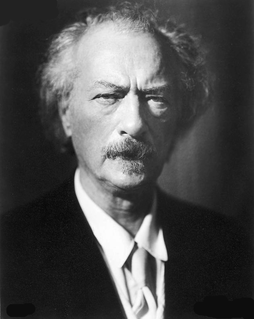A Quote by Lord Byron
Related Quotes
I do not believe, as do so many musicians, that genius should be left to fight its way to the light. Genius is too rare, too precious, to be permitted to waste the best years of life--the years of youth and lofty dreams--in a heart-breaking struggle for bread. To starve the soul with the body is to do worse than murder. Think, too, of what the public loses!
I don't keep from despairing. I let myself despair. I just don't linger there for too long. There's too much to laugh about, two knuckleheads I have to feed, and a lot of really excellent television to watch. I think the mess we're in deserves the full range of human feeling, from despair to its opposite, which I would say is not hope, happiness, or peace, but freedom.
Compared with the person who is conscious of his despair, the despairing individual who is ignorant of his despair is simply a negativity further away from the truth and deliverance. . . . Yet ignorance is so far from breaking the despair or changing despair to nondespairing that it can in fact be the most dangerous form of despair. . . . An individual is furthest from being conscious of himself as spirit when he is ignorant of being in despair. But precisely this-not to be conscious of oneself as spirit-is despair, which is spiritlessness. . . .
To him whom contemplates a trait of natural beauty, no harm nor despair can come. The doctrines of despair, spiritual or political servitude, were never taught by those who shared the serenity of Nature. For each phase of Nature, though not invisible, is yet not too distinct or obtrusive. It is there to be found when we look for it, but not too demanding of our attention.
An individual in despair despairs over something. . . . In despairing over something, he really despair[s] over himself, and now he wants to get rid of himself. Consequently, to despair over something is still not despair proper. . . . To despair over oneself, in despair to will to be rid of oneself-this is the formula for all despair.
It's despair at the lack of feeling, of love, of reason in the world. It's despair that anyone can even contemplate the idea of dropping a bomb or ordering that it should be dropped. It's despair that so few of us care. It's despair that there's so much brutality and callousness in the world. It's despair that perfectly normal young men can be made vicious and evil because they've won a lot of money. And then do what you've done to me.
Genius! thou gift of Heav'n! thou Light divine!
Amid what dangers art thou doom'd to shine!
Oft will the body's weakness check thy force,
Oft damp thy Vigour, and impede thy course;
And trembling nerves compel thee to restrain
Thy noble efforts, to contend with pain;
Or Want (sad guest!) will in thy presence come,
And breathe around her melancholy gloom:
To Life's low cares will thy proud thought confine,
And make her sufferings, her impatience, thine.
Brutes find out where their talents lie; A bear will not attempt to fly, A foundered horse will oft debate Before he tries a five barred gate. A dog by instinct turns aside Who sees the ditch too deep and wide, But man we find the only creature Who, led by folly, combats nature; Who, when she loudly cries-Forbear! With obstinacy fixes there; And where the genius least inclines, Absurdly bends his whole designs.




































